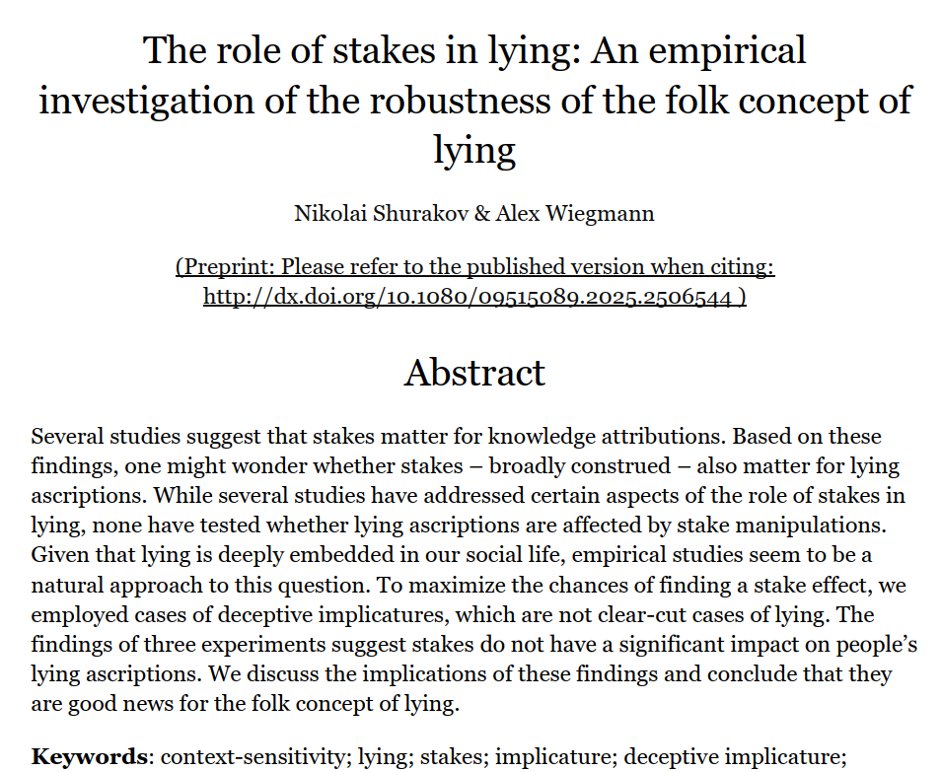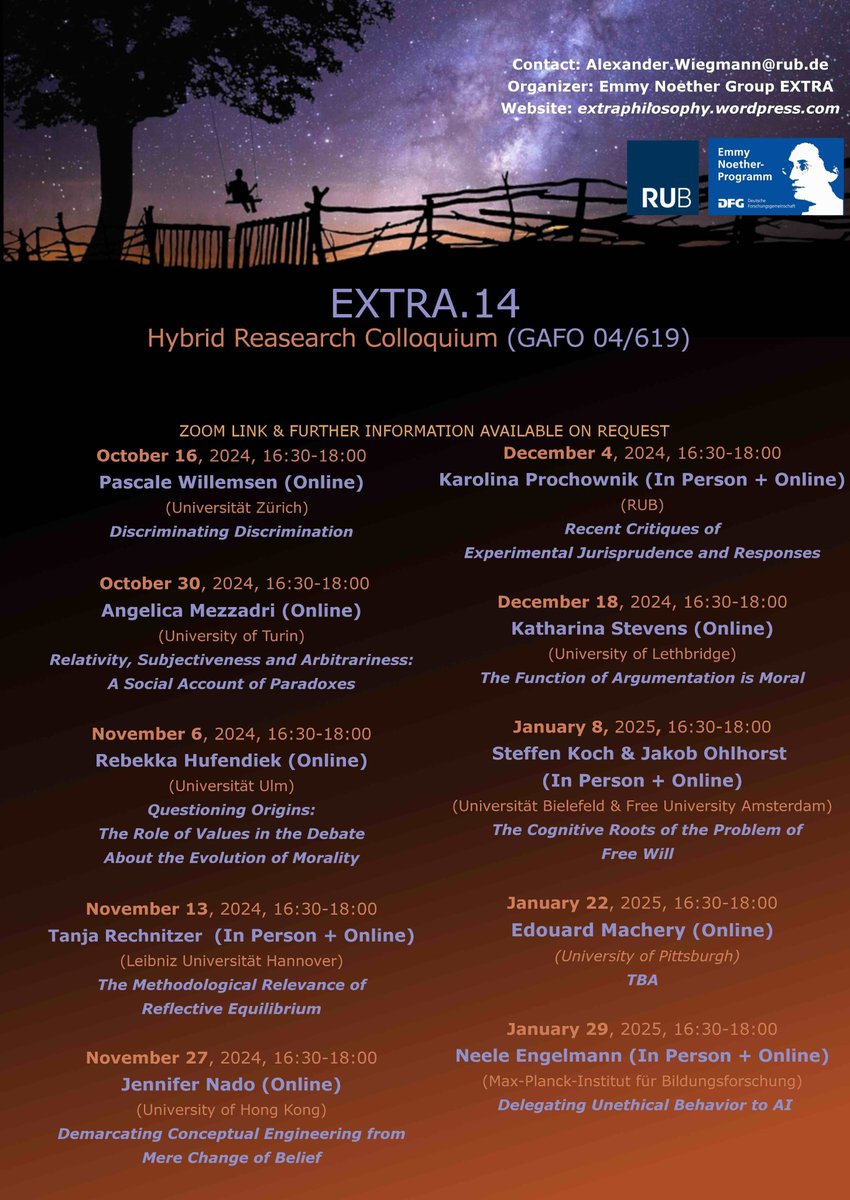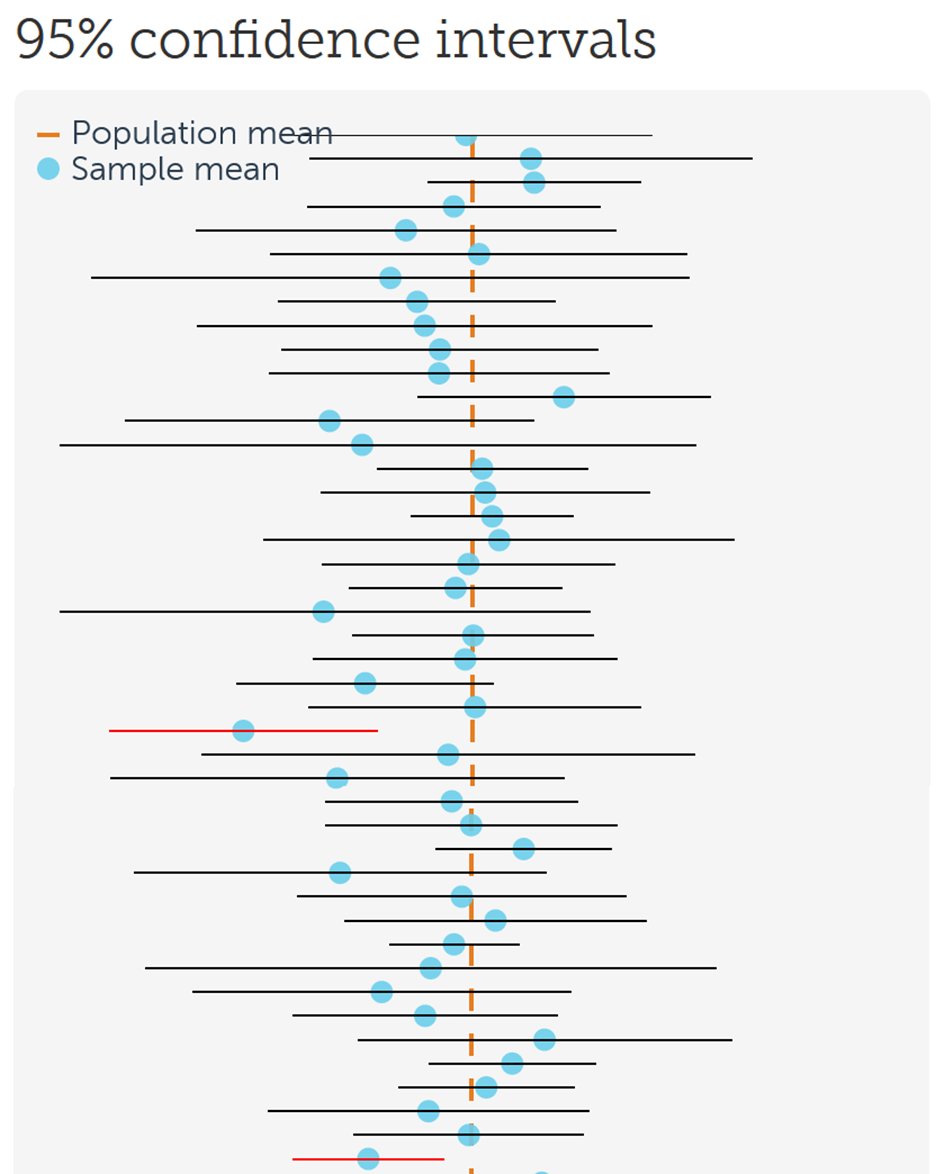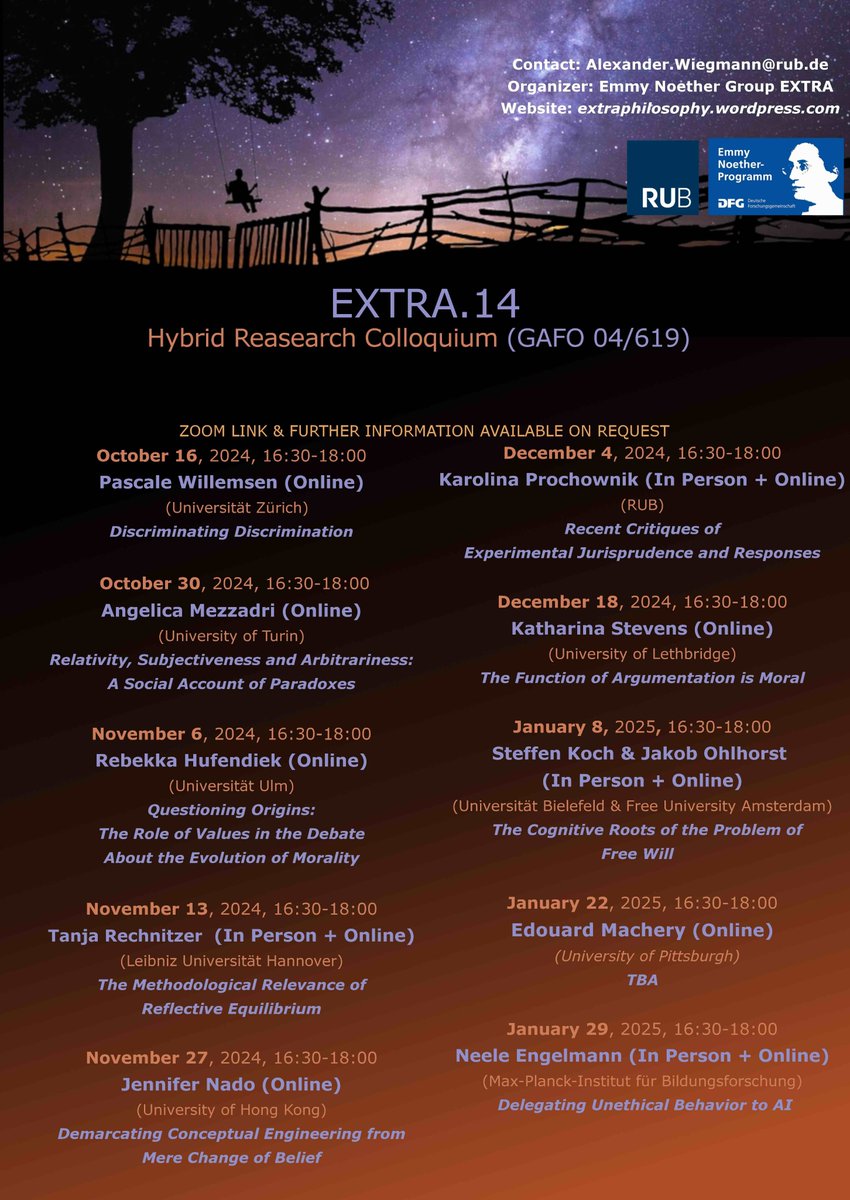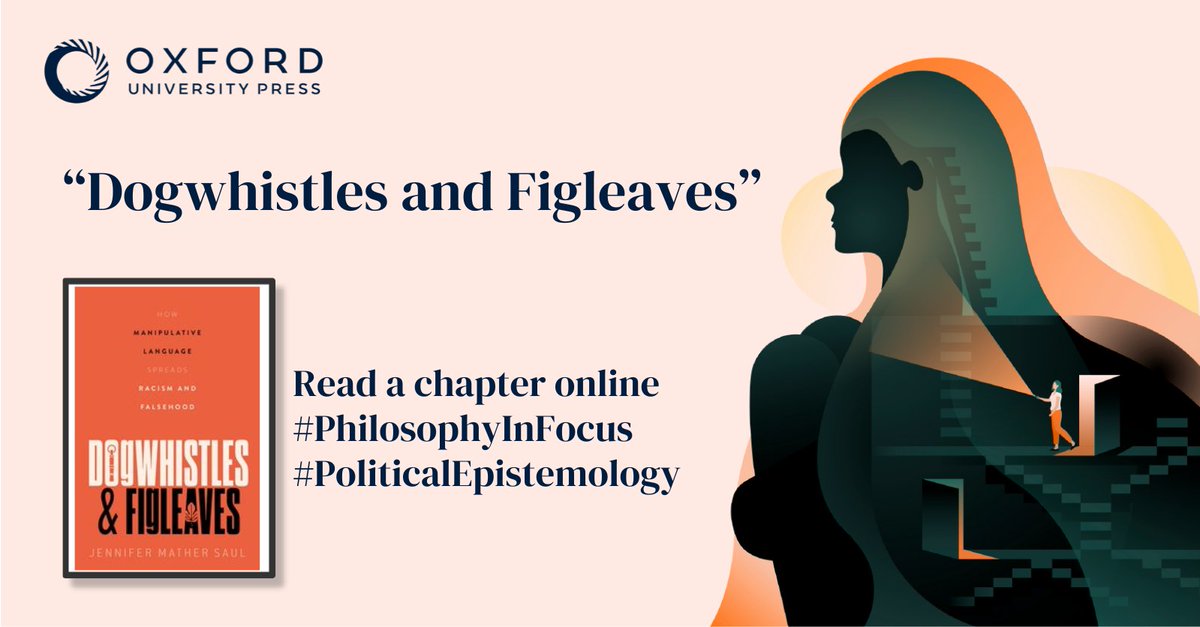
neele engelmann
@neele_engelmann
cognitive scientist, postdoc @Max_Planck_CHM. human-AI-interaction, causal & moral reasoning, xphi, xjur, open science etc.
ID: 1249953128
http://neeleengelmann.com 07-03-2013 20:08:04
1,1K Tweet
611 Followers
1,1K Following



📢New paper! Do we shift our views on bioethical issues after reflecting on consequences? TLDR: Yes, but not as we predicted. Reflecting on consequences does NOT make views more progressive or unified. w/ Bystranowski, Moral Science Lab & Jon Rueda Etxebarria 🔓dx.doi.org/10.1111/cogs.7…
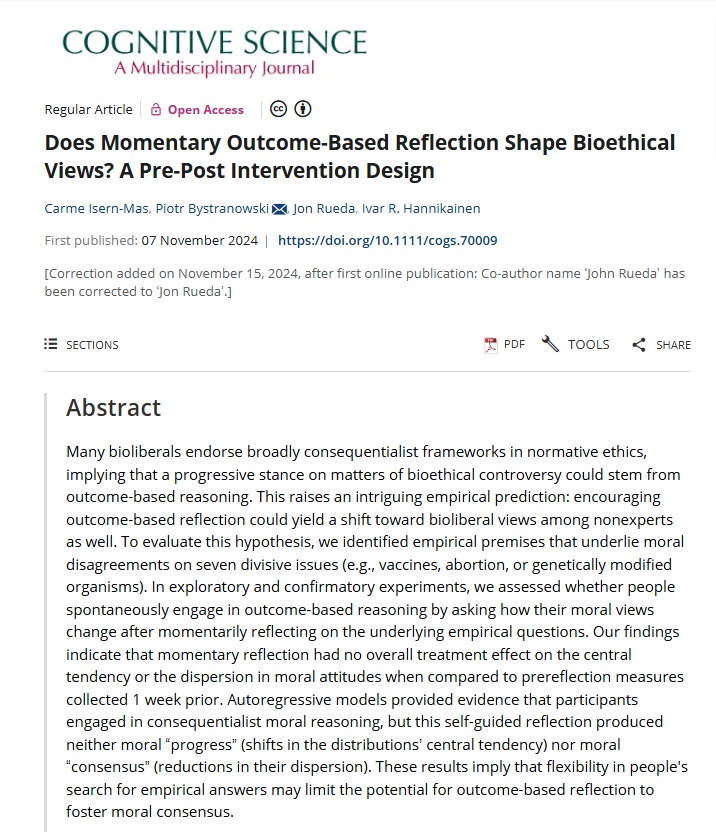

Can consequentialist reflection bring about (a) progress, or, at the least, (b) consensus? In a new paper in CogSci Society, we find a clear lack of evidence for either prediction when people reason briefly about various bioethical controversies.
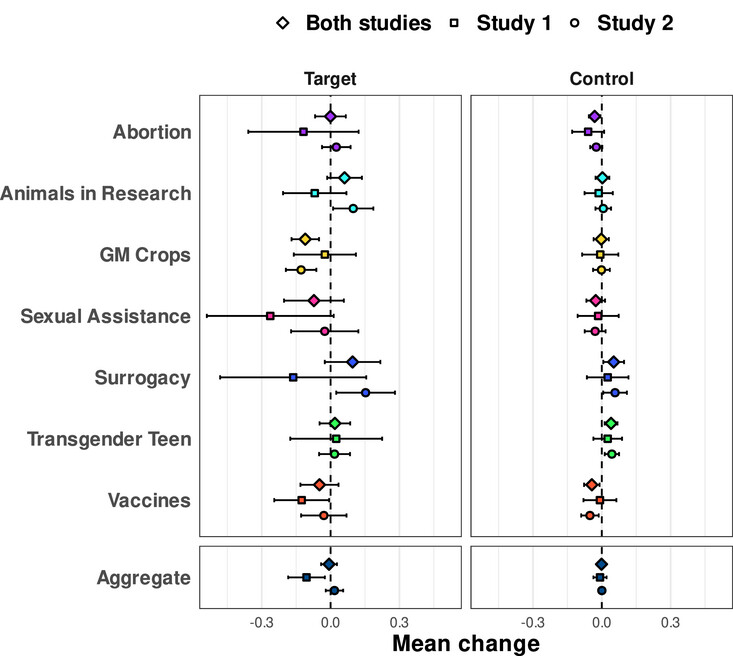

There are many moral setbacks in the world: wars, violence, harmful policies. Yet, many of us still try to create change. Why? Now out in Cognitive Science, with Tania Lombrozo and Sana Asifriyaz! doi.org/10.1111/cogs.7…


fascinating book presentation (and cartooning workshop!) by Amy Kurzweil at Center for Humans & Machines today. Can't wait to dive into "artificial" now 🤖💕🎶






New post The 100% CI by me: I read two books on the alleged teen mental health crisis and social media's role in it, by Jonathan Haidt and by @drlucyfoulkes. Then, I tried to make up my own mind, with limited success.




Thank you Narodowe Centrum Nauki for funding! Here is the new website of the project: talkingtobots.net

🌎 Fear of AI in 20 countries 🌏 Just published in American Psychologist: Despite large variations of fear across countries and domains, we validated a unified psychological model. Paper: doi.org/10.1037/amp000…… American Psychological Association showcase: tinyurl.com/4euzan7b #ai #aiethics




🚨Preprint Alert 🚨 Excited to share that my first first-author paper from my PhD has been accepted in Philosophical Psychology(Philosophical Psychology) (co-authored by my co-supervisor Alex Wiegmann(Alex Wiegmann )). Short thread 🧵with link to preprint
